Kids Sue 30+ European Countries on Climate
Air Date: Week of October 13, 2023
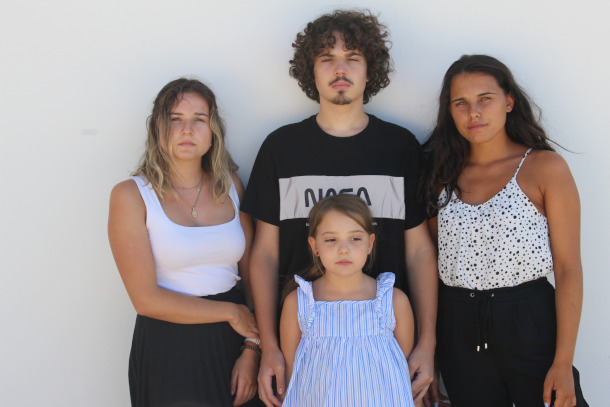
Four of the six youth applicants, now aged 11-24, are from the Leiria region of Portugal, which experienced deadly forest fires in 2017. (Photo: Global Legal Action Network)
Six young plaintiffs from Portugal are suing over 30 European countries they say have violated their rights to life by failing to act on climate change. Patrick Parenteau is an emeritus professor at Vermont Law School and joins Host Jenni Doering to recap the recent hearing in front of a “Grand Chamber” of judges in the European Court of Human Rights and discuss what it could mean for climate action.
Transcript
BELTRAN: It’s Living on Earth, I’m Paloma Beltran
DOERING: And I’m Jenni Doering.
After enduring years of punishing heat waves and out of control wildfires, in 2020 six young people from Portugal filed a lawsuit against over 30 European countries. The youth plaintiffs say that by failing to act on climate change, these countries have violated their rights to life and family security, as guaranteed by the European Convention on Human Rights. And on September 27 of this year, these young people and their lawyers finally made their case in front of a “Grand Chamber” of 17 judges at the European Court of Human Rights in Strasbourg, France. Patrick Parenteau is an emeritus professor at Vermont Law School, and he’s here to walk us through what this case might mean for climate litigation around the world. Welcome to Living on Earth, Pat!
PARENTEAU: Thanks, Jenni, good to be with you.
DOERING: So what are these youth plaintiffs saying that these 32 countries have failed to do?
PARENTEAU: They're basically saying the countries are not living up to their commitments to take meaningful action to reduce emissions. And they're using as their benchmark, the Paris Agreement goal of holding temperatures below 1.5 degrees Celsius, and certainly not exceeding two degrees Celsius. So the plaintiffs are saying, you need to take more aggressive action to reduce these emissions in every sector. And they've laid out a plan for how to do that. It's a comprehensive case, in the sense of the first time you're suing a group of countries that large. No other case has ever done that. And it's in front of a court that has the power to order these countries to take action. So that's what makes it such an important case.
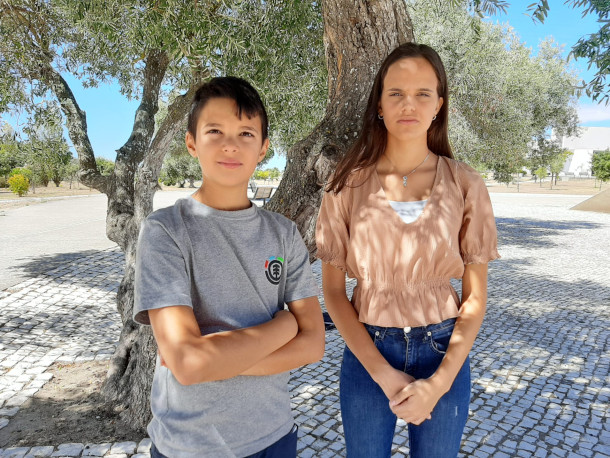
The other two youth applicants, Andre and Sofia, now aged 15 and 18, are from Lisbon, Portugal. (Photo: Nuno Gaspar de Oliveira)
DOERING: At the hearing in this case, on September 27, the judges heard oral arguments from both sides. What were some of the main questions raised there?
PARENTEAU: Three main issues. The first and most important one is whether this court actually has jurisdiction to adjudicate the claims that the young plaintiffs, they're called applicants, are bringing. And the convention is aimed at ensuring protection of human rights within the individual countries. In this case, it would be Portugal. And the central question is whether the court is actually going to take jurisdiction over actions and inactions that are occurring in these other states. In the past, this court has been very restrictive. So will this court break from some of its earlier precedents and extend its jurisdiction to cover all 32 nations that have been sued in this case?
DOERING: That sounds like a lot of power for one court, Pat.
PARENTEAU: It is a lot of power. And it also will mean the court will be injecting itself into the whole realm of global action required to deal with climate change. And in fact, one of the big arguments from these 32 countries is, you need to stay out of this and leave this to the United Nations Framework Convention on Climate Change, the Paris Agreement, and the COP meetings. That's the forum where all of these issues need to be addressed in a collective way, globally. This court should not insert itself into that process and start ordering individual countries to do things that are different from what's being negotiated in these international treaty negotiations. So that is a big issue.
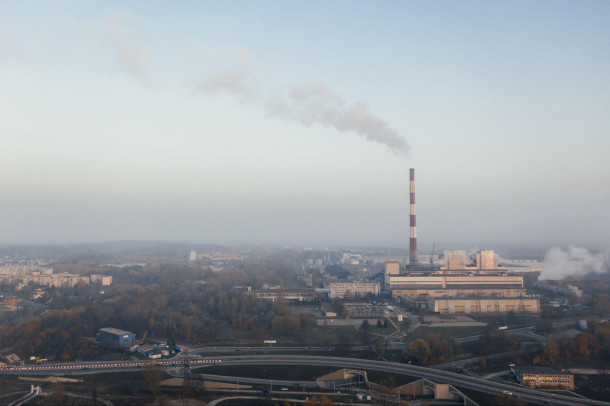
These young people are suing 32 countries, saying their failure to curb greenhouse gas emissions has violated the applicants’ human rights. (Photo: Marcin Jozwiak, Pexels)
DOERING: So tell us about the second issue that was raised in this hearing.
PARENTEAU: So the second issue is what we in the United States would call the requirement to exhaust administrative remedies. And what that means in this context is these youth plaintiffs should have gone to courts in each country, all 32, starting with Portugal, and attempted to get relief from their domestic courts. So that's what exhaustion means. Go to your own courts first. And if you're not successful there, then you can come to the Human Rights Court. The response to that, which I found persuasive, was number one, it's not clear that any of the countries have an established pathway to obtain the relief we're seeking, which is action equivalent to holding global temperatures below 1.5 Celsius increase. Number two, it would be extremely costly to bring lawsuits in 32 countries. And number three, it would take an inordinate amount of time to do that. And of course, we don't have that kind of time. We need to be acting now. So their response to the exhaustion is, it would be futile.
DOERING: So you mentioned there's three main questions. What was the third?
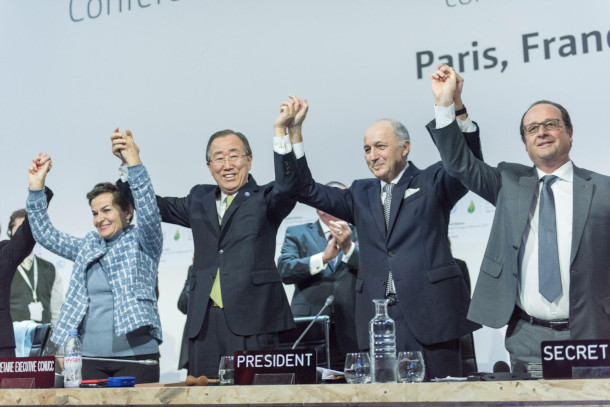
The Paris Climate Agreement’s goal is to keep global average temperatures below 1.5 degrees Celsius above pre-industrial levels. The youth applicants allege countries are not doing enough to meet that target. (Photo: UN Photo, Flickr, CC BY-NC-ND 2.0)
PARENTEAU: The third issue is whether these youth plaintiffs can prove standing. The European law uses different terminology, victimhood, and it has to do with how direct and individualized must the harm be in order for an applicant to have standing. These youth plaintiffs were able to demonstrate that they are experiencing harms that are not unique to them, right? Everyone in the world is experiencing the effects of climate change to varying degrees. But what these plaintiffs are saying is, Portugal represents a particularly dangerous situation. And our conditions are exaggerated. They may not be different in kind, but they're different in degree. The declarations in this case, for example, talk about how the students are not allowed to leave class. Some of their schools have been shut down. They can't engage in athletic activities, simply because of the heat. It's just simply so hot, that you can't function in a normal way. How do you conduct day to day activities, when the temperature is such that the medical science is telling you, you're risking heatstroke every day throughout the summer?
DOERING: It doesn't sound like much of a childhood, Pat, you know, no recess, no playtime outside.
PARENTEAU: That's right. And they had medical testimony presented to that very point, it was both physical impacts on the children, and mental. And this is just the beginning. The potential harm is much worse, unless much stronger action is taken to reduce emissions and provide for adaptation.
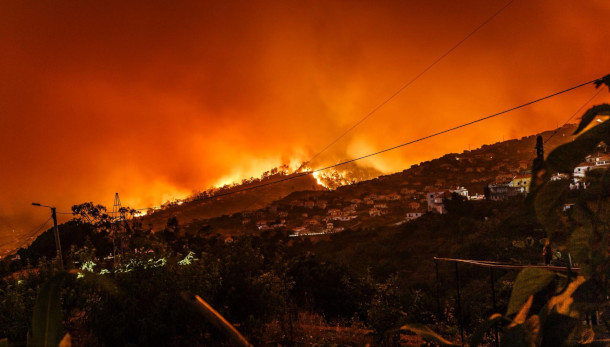
Over the past decade, Portugal has faced severe wildfires and heat waves, which will continue to be exacerbated by climate change. (Photo: Michael Held, Unsplash)
DOERING: You know, just on the question of how much time there is for these plaintiffs to act and for these countries to act, the IPCC has said that we have to basically halve our carbon emissions globally, by the end of this decade, like six years away, Pat.
PARENTEAU: Right. And the lawyers for the youth plaintiffs made a big point about how rapidly the nations in Europe and elsewhere have to move in order to meet their commitments under the Paris Agreement. We're way behind. They actually presented evidence from an entity known as the carbon action tracker, or CAT. And it's very quantitative evidence of what each individual nation's fair share would be in terms of reducing emissions. So they've laid out a blueprint. Again, if the court decides to take this case on, and if it decides to genuinely engage with the question of what exactly is your legal obligation, each and every one of you, this will be a dramatic breakthrough for climate change. It's pushing the boundaries of how far courts should go when you have a problem of this nature. But it certainly is an opportunity for the court to put down a very strong marker here. And we'll see if it does it.
DOERING: Right, because the Paris Climate Agreement, if I understand it correctly, is not actually legally binding. And so it sounds like this decision from this court may actually put some teeth behind that.
PARENTEAU: You're exactly right, Jenni. The Paris Agreement sets goals, but it doesn't impose binding targets. It does have binding procedural obligations, like disclosing what your emissions are. But when it comes to limiting global warming to 1.5 or two degrees Celsius, no, that's not a legally binding obligation. That's their ultimate goal in this case, is to make that 1.5 degree limit legally enforceable throughout the European Union countries to start with. And then hopefully, beyond that. This court does have the power to issue a legally binding order, if they're willing to do it.
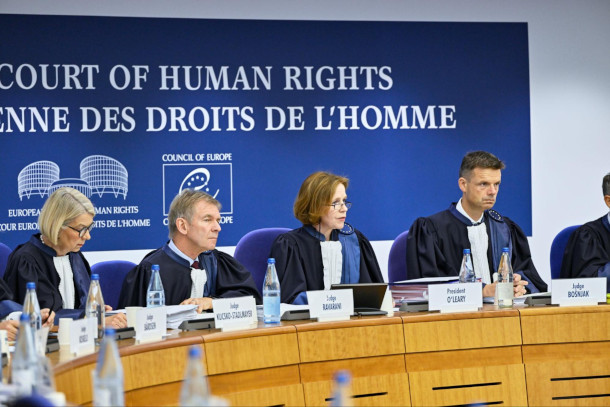
The case was heard in front of the Grand Chamber, which includes 17 judges from 17 different countries. (Photo: Council of Europe)
DOERING: Pat, we've seen a lot of youth climate cases hit the headlines here in the US. To what extent are we seeing a global pattern here?
PARENTEAU: The number of human rights based cases, and the number of cases being brought by youth plaintiffs is steadily increasing both in the United States and elsewhere. So it's a sign, of course, that the governments, who are ultimately responsible, that political process, is not responding to the crisis in the way that's necessary. And more and more people are turning to the courts. And they're seeking ever, in my view, sophisticated and innovative remedies and arguments and theories. I mean, they're pushing the law. Climate change is pushing the law. Climate change is going to push this court, I think, in the direction of issuing something, hopefully, positive in this case.
DOERING: Patrick Parenteau is an emeritus professor at Vermont Law School. Thank you so much, Pat.
PARENTEAU: Thanks, Jenni. Always a pleasure.
Links
Living on Earth wants to hear from you!
Living on Earth
62 Calef Highway, Suite 212
Lee, NH 03861
Telephone: 617-287-4121
E-mail: comments@loe.org
Newsletter [Click here]
Donate to Living on Earth!
Living on Earth is an independent media program and relies entirely on contributions from listeners and institutions supporting public service. Please donate now to preserve an independent environmental voice.
NewsletterLiving on Earth offers a weekly delivery of the show's rundown to your mailbox. Sign up for our newsletter today!
 Sailors For The Sea: Be the change you want to sea.
Sailors For The Sea: Be the change you want to sea.
 The Grantham Foundation for the Protection of the Environment: Committed to protecting and improving the health of the global environment.
The Grantham Foundation for the Protection of the Environment: Committed to protecting and improving the health of the global environment.
 Contribute to Living on Earth and receive, as our gift to you, an archival print of one of Mark Seth Lender's extraordinary wildlife photographs. Follow the link to see Mark's current collection of photographs.
Contribute to Living on Earth and receive, as our gift to you, an archival print of one of Mark Seth Lender's extraordinary wildlife photographs. Follow the link to see Mark's current collection of photographs.
 Buy a signed copy of Mark Seth Lender's book Smeagull the Seagull & support Living on Earth
Buy a signed copy of Mark Seth Lender's book Smeagull the Seagull & support Living on Earth

